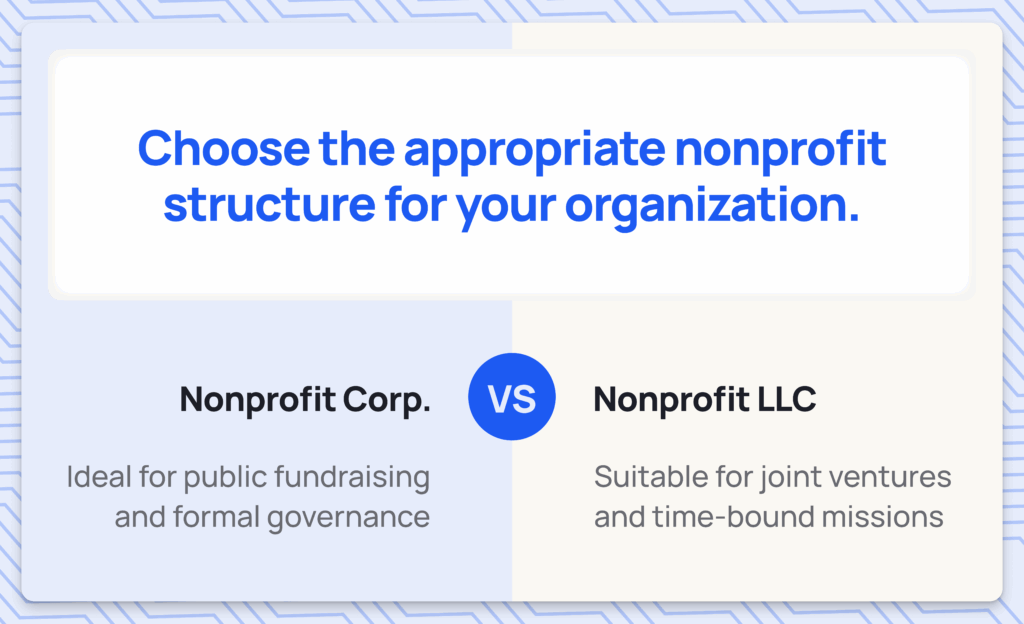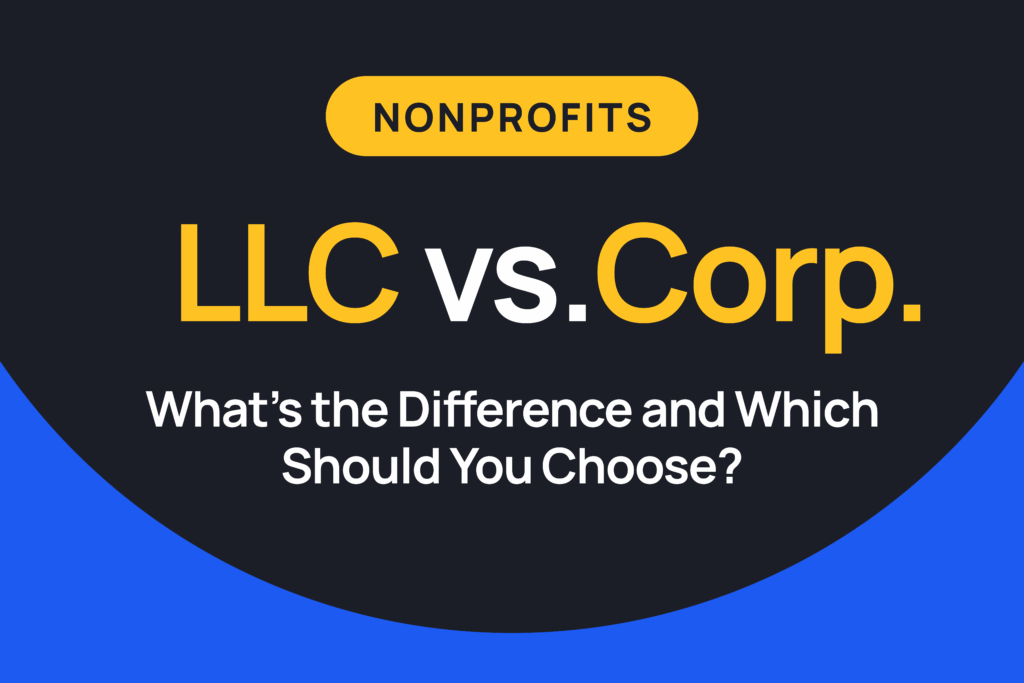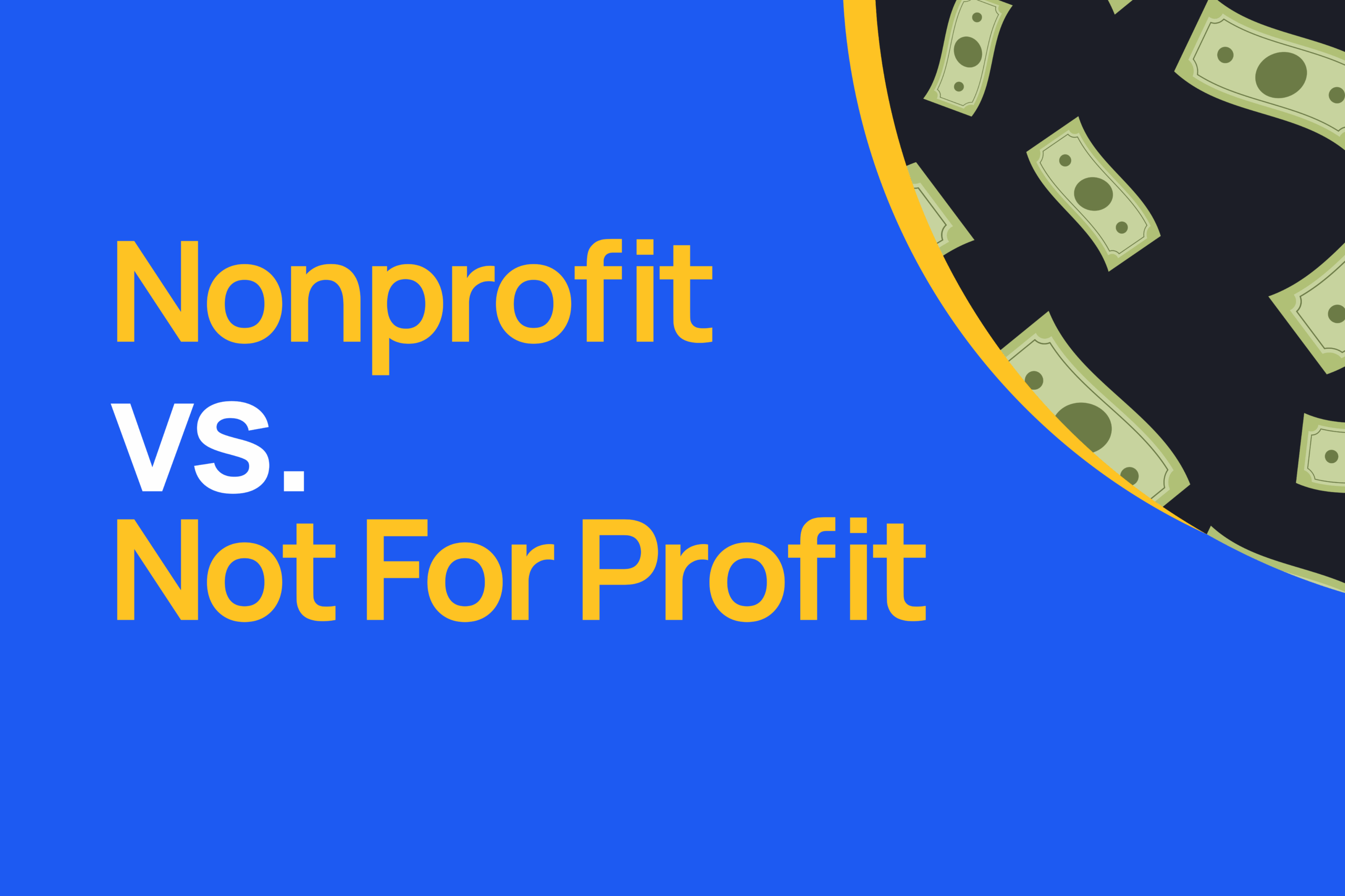If you’re launching a mission-driven organization, choosing the right legal structure is one of the most important first steps. While many nonprofits are structured as corporations, some founders consider forming a nonprofit LLC. In this blog, we’ll break down what each structure means, how they differ, and how a platform like Crowded can support both types of organizations.
What Is an LLC?
A Limited Liability Company (LLC) is a legal business structure that provides its owners (called members) with personal liability protection. It combines the simplicity of a sole proprietorship or partnership with the legal protections of a corporation.
LLCs are popular for their:
- Flexible management and ownership structure
- Pass-through taxation (profits are reported on members’ personal tax returns)
- Legal separation between the business and its owners
However, most LLCs are created to earn a profit for their owners. This is where the concept of a nonprofit LLC requires special handling.
What Is a Nonprofit Corporation?
A nonprofit corporation is the most common structure for organizations with charitable, educational, religious, or scientific missions. These organizations:
- Operate for the public good
- Do not distribute profits to individuals
- Can apply for tax-exempt status under Section 501(c)(3) of the IRS code
Nonprofit corporations are governed by a board of directors and must follow strict rules about how they manage finances, handle donations, and maintain compliance.
What Is a Nonprofit LLC?
A nonprofit LLC is a limited liability company that operates exclusively for charitable purposes. To be recognized as tax-exempt, a nonprofit LLC must meet very specific IRS and state requirements, including:
- Having a charitable mission
- Including required language in its articles of organization
- Ensuring no profits benefit any individual
- Often being entirely owned by one or more 501(c)(3) organizations
Because of these strict rules, nonprofit LLCs are typically used for joint ventures between established nonprofits or for special projects.
How Crowded Supports Both Structures
Whether you operate as a nonprofit corporation or a nonprofit LLC, Crowded offers modern financial tools to help you stay compliant and manage operations effectively.
Crowded helps with:
- Banking and financial management customized for nonprofits
- Compliance tracking to maintain 501(c)(3) status
- Automated donation tracking for easier fundraising and reporting
- Segregated accounts for managing programs or chapters
- Streamlined onboarding for volunteer treasurers and board members
Because Crowded was built specifically for mission-driven organizations, it understands the unique financial and administrative needs of both nonprofit corporations and LLCs.
Which Structure Is Right for You?
Choose a nonprofit corporation if:
- You want to apply for 501(c)(3) tax-exempt status
- You plan to fundraise publicly or apply for grants
- You need formal governance and credibility with donors
Consider a nonprofit LLC if:
- Your organization is a joint venture between existing nonprofits
- You have a narrow, time-bound mission
- You understand and can meet the IRS requirements

Final Thoughts: Forming a Nonprofit LLC vs Nonprofit Corporation
Selecting between a nonprofit LLC and a nonprofit corporation depends on your mission, funding goals, and operational structure. While nonprofit corporations are more common and widely accepted, a nonprofit LLC might be the right fit for certain collaborative or specialized efforts.
No matter which path you choose, platforms like Crowded make it easier to manage your organization’s finances, stay compliant, and grow your impact. Learn more about how Crowded supports nonprofits of all sizes and structures at bankingcrowded.com.
Your questions, answered.
Is it easier to start a nonprofit corporation or a nonprofit LLC?
Generally, it’s easier and more straightforward to start a nonprofit corporation. The process for forming a nonprofit LLC is more complex due to additional IRS rules, especially if you’re seeking tax-exempt status.
Why would someone choose a nonprofit LLC over a corporation?
A nonprofit LLC might be chosen for joint ventures between nonprofits, limited-purpose projects, or when more operational flexibility is needed. However, this structure is best suited for organizations that understand the complexities of nonprofit compliance.
Can a nonprofit LLC receive tax-deductible donations?
Only if the nonprofit LLC has been granted 501(c)(3) status by the IRS. Otherwise, donations are not tax-deductible. Most donors and grantmakers prefer donating to nonprofit corporations because of their recognized tax-exempt status.
How does Crowded support nonprofit LLCs and corporations?
Crowded provides financial tools tailored to mission-driven organizations, including donation tracking, compliance monitoring, nonprofit banking, and board-friendly reporting. Whether you’re structured as a nonprofit corporation or LLC, Crowded simplifies your financial operations.














